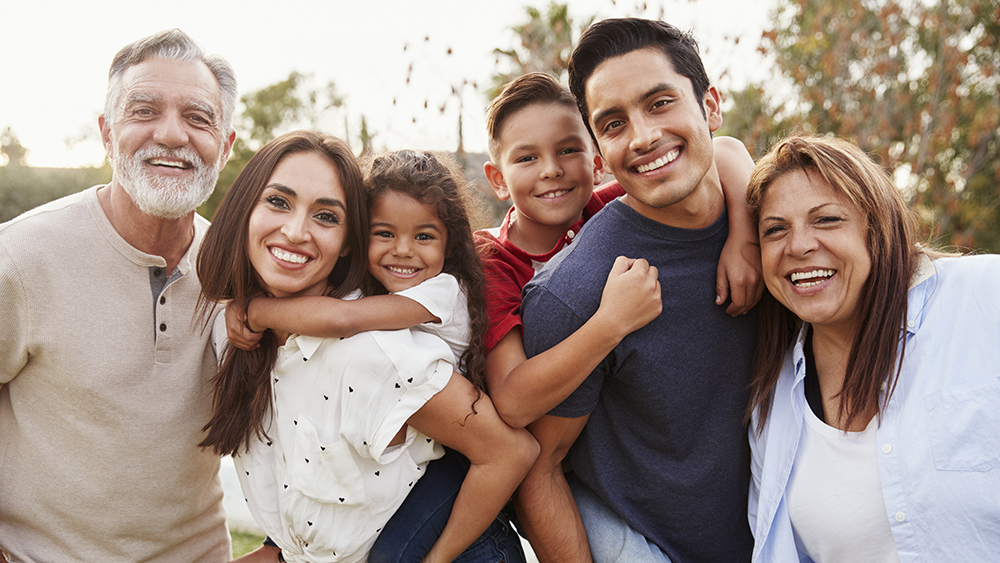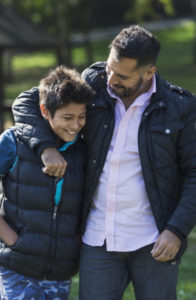Random Acts of Kindness Matter for Your Health

Random Acts of Kindness Day is celebrated on February 17 to remind all of us that being kind is simple AND impactful. It’s even contagious! You’ve probably experienced this firsthand: Someone did something nice for you and you felt inspired to do a good deed for someone else. Or there has been a time when you have done something nice for someone and their visible gratitude filled you with happiness. Did you know your one simple kind gesture can inspire hundreds more?
In this heartwarming story of kindness, nearly 400 people participated in a ‘pay-it-forward’ chain at a Florida Starbucks drive-thru. Starting at 7 a.m., a woman drove up to pay for her order and offered to pick up the tab for the driver behind her. This inspired the next person to do the same. This chain of kindness then continued for an astonishing 378 customers!
Kindness not only has the ability to change our day, but it can change the trajectory of our life. Continue reading to learn how your kindness impacts children’s development, your community, peers and even your own physical and mental health.
Learn about the 5 things every child needs for good mental health here!
Kids Need Kindness

Children and adolescents are very impressionable, so it’s important that the people they spend their time with set a positive example. They’re curious observers watching for clues on how they should act. They learn a lot from the adults they look up to. In their early years, it is especially important that they are constantly stimulated, engaged and treated with positive interactions. It has impacts on their development and overall wellbeing.
To raise your children to be more kind to themselves and others, one of the most important things you can do is spend plenty of quality time together. Here are some of the benefits:
- Develops positive behaviors: Family time creates the opportunity for you to either praise good behavior or correct negative behavior. Also, children who spend more time with their parents tend to be well-rounded.
- Reduces the likelihood of illegal substance use: A study from the National Center on Addiction and Substance Abuse shows that adolescents who don’t spend enough time with their family are twice as likely to use illegal substances.
- Forms stronger relationships: The more positive and encouraging you are toward your child, the most they will want to be around you. These uplifting interactions and frequently spending time together as a family helps you form a stronger emotional bond, trust and openness with each other.
- Builds self-esteem: Spending time with your child improves their feelings of self-worth because as you make them feel valued, they feel more positive about themselves. Low self-esteem can lead to self-destructive behaviors and result in a child losing interest in interacting with loved ones.
How Kindness Impacts Physical and Mental Health
Kindness isn’t just a random compilation of words and actions. It’s a way of life that leaves lasting impacts on our physical and mental health. Here are a few ways how:
- Pain: Kindness releases endorphins in the brain that make it a natural painkiller.
- Stress & Aging: Kind people have 23% less cortisol (the stress hormone) and age slower.
- Anxiety & Depression: It increases positive moods and reduces social anxiety, improves life satisfaction and delays mortality. It stimulates the production of serotonin which heals wounds, calms and increases happiness.
- Blood Pressure: It releases oxytocin, a “cardioprotective” hormone and dilates blood vessels which reduces blood pressure.
- Happiness: Kindness stimulates the production of serotonin, our “feel good” chemical.
See this handout from Darmouth College to learn about more ways that kindness affects your physical and mental health.
What are some things you can do to be kind in your community?
- Become a foster parent: There are thousands of children and teens in Nebraska who need safe, loving homes. Learn more and sign up today!
- Care for people with disabilities: Our Shared Living Providers open their homes to teach individuals with intellectual and/or developmental disabilities social and independent living skills and form strong community connections. Learn more and sign up for training!
- Share your talents: tutor and mentor, sing in your congregation’s choir
- Volunteer: help distribute food at a food bank, explore KVC’s volunteer opportunities including helping out at our biannual Resource Family Conference, clean up a local park
- Donate: give holiday gifts, become an Everyday Hero, provide basic needs for children, families and adults experiencing hardships
What are some ways you can easily show kindness to your peers?
- Respect their time.
- Be honest and open.
- Take the time to get to know them.
- Show them gratitude and appreciation.
- Be compassionate and forgiving.
About KVC Nebraska
KVC Nebraska is a private, nonprofit organization that provides a variety of programs and services to meet the diverse needs of youth, families and adults throughout Nebraska. We offer foster care, home-based support for people with disabilities, intensive in-home preservation and reunification, behavioral health, and educational support services to over a thousand children, families and adults every year.
Additional Kindness Resources
- Click here to read stories of kindness.
- Blog: How to Use Your Mobile Phone for Random Acts of Kindness
- Blog: Cultivating Kindness in an Unkind World
- Click here to watch videos of kindness.
